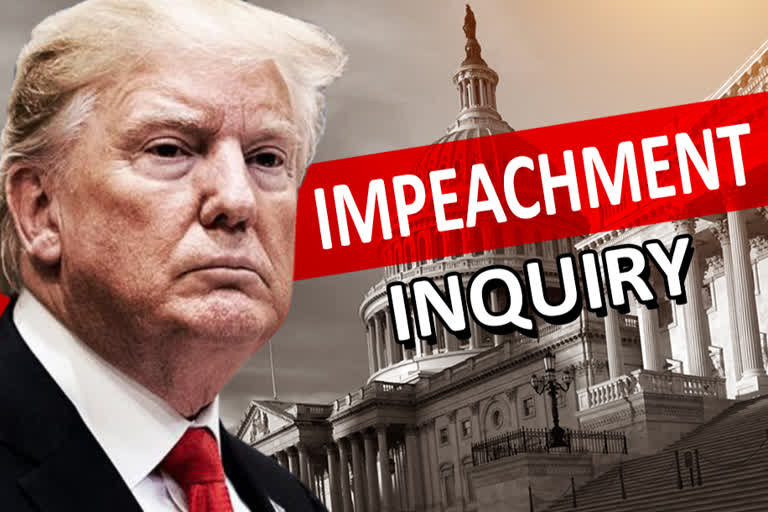Washington: The start of open hearings in the impeachment investigation into President Donald Trump on Wednesday will give the American public their first chance to witness live the explosive showdown between Democrats and Republicans over the US leader's future.
The hearing before the House Intelligence Committee marks the second phase of the impeachment investigation into allegations that Trump abused his powers by seeking help for his 2020 reelection campaign from Ukraine.
Trump is under threat of becoming only the third president in US history to be impeached -- formally charged with violating his duties as president or committing crimes, and placed on trial in the Senate.
With Democrats in control of the House of Representatives, impeachment appears highly likely, as soon as the end of 2019.
But the Republicans hold a majority in the Senate, a bulwark against him being convicted and removed from office -- unless they turn against him.
There is still much to do, but analysts believe the entire process could be completed before the end of January.
Evidentiary hearings
On Wednesday, the House Intelligence Committee takes the impeachment investigation public after six weeks of closed-door depositions from White House, State Department, and other officials.
Those depositions have already painted a fairly complete picture of how Trump and aides, including personal lawyer Rudy Giuliani, pressured Ukraine's President Volodymyr Zelensky to open investigations that could conceivably find political dirt against the Democrats and Trump's possible 2020 election rival Joe Biden.
Some of the witnesses who already testified privately will be recalled to face the public panel, starting with Ambassador William Taylor, Washington's top diplomat in Ukraine, and Deputy Assistant Secretary of State George Kent on Wednesday, and former Ambassador to Ukraine Marie Yovanovitch on Friday.
The aim is to further compile the evidence against the president, or, for Republicans, in his support.
Democrats chose all the witnesses for the initial private depositions phase.
In the open hearings, both parties can propose and subpoena witnesses -- although Intelligence Committee Chairman Adam Schiff will be able to prevent Republicans from inviting witnesses who have no relation to the core allegations or who simply seek to stall the proceedings.
Setting the charges
